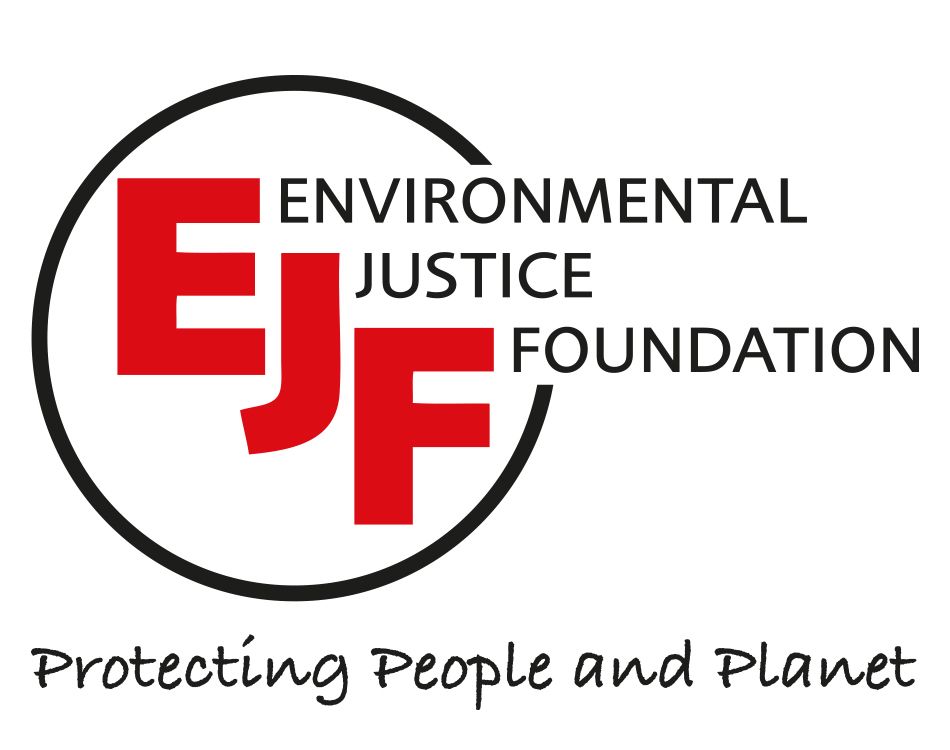For COP30, around 30,000 people from over 190 countries have arrived in the Brazilian city of Belém.
Belém, the gateway to the Amazon, has rushed to accommodate the influx of delegates.
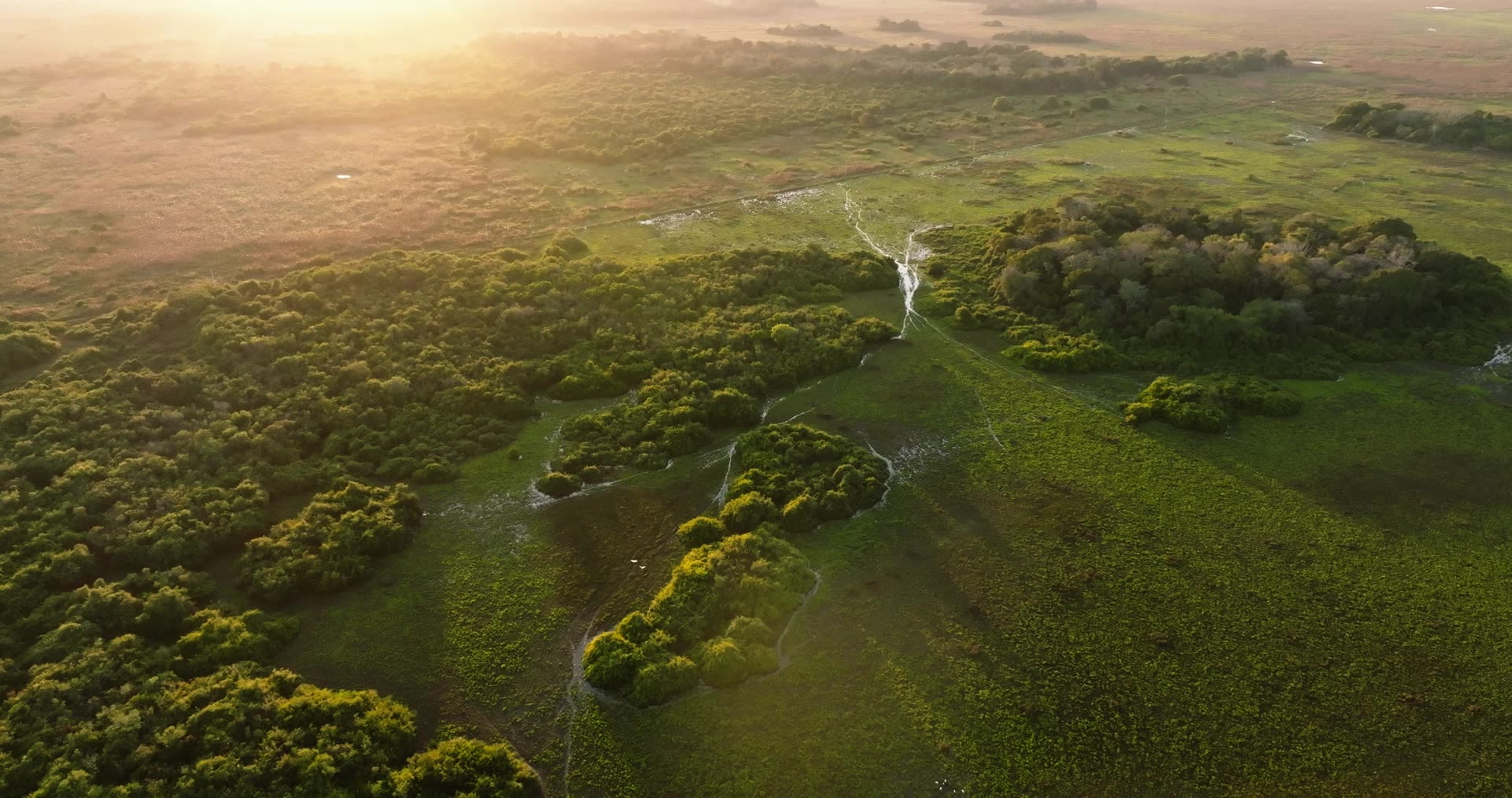
By hosting COP30 in Belém, the Amazon rainforest - which now emits more CO2 than it absorbs - is placed front and centre at the climate talks; a close-at-hand reminder of the urgent need to protect the world's most vital ecosystems.
However, as delegates meet in Belém, over 2000km away an equally crucial ecosystem battles wildfires.
The Pantanal, which covers a large part of Brazil's state of Mato Grosso do Sul and stretches across borders to Paraguay and Bolivia, is the world's largest tropical wetland.
Wetlands are nature’s carbon storage powerhouses. They occupy just 6% of the Earth’s land surface, yet store the majority of global soil carbon. To find out more, watch EJF's 2025 trailer for our film Pantanal here.
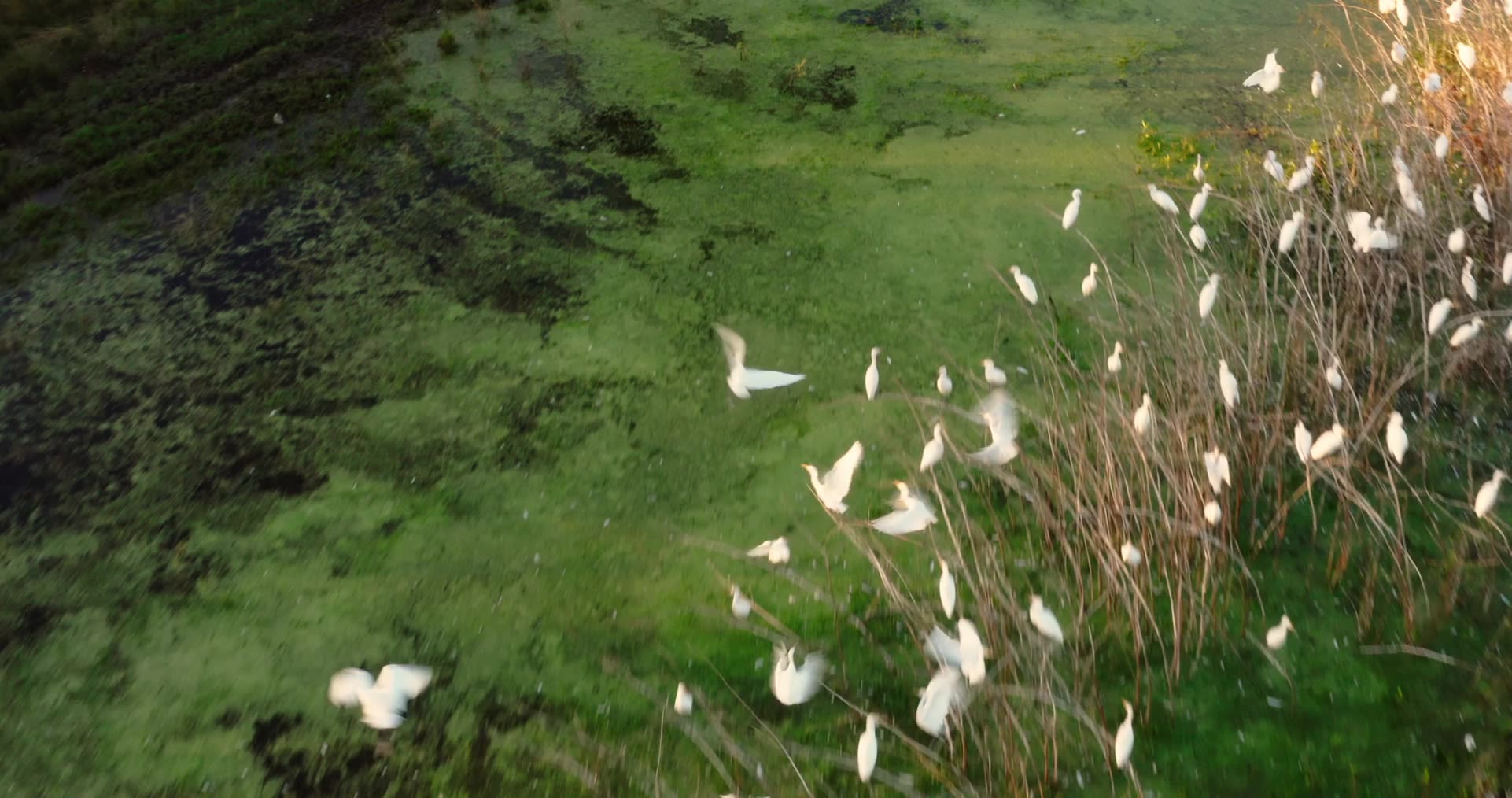
This diverse habitat supports many species, including:
2000 plants, 580 birds, 271 fish, 174 mammals and 57 amphibians.
Some rare and threatened species include the giant otter, lowland tapir, giant anteater, hyacinth macaw, and maned wolf.
The Pantanal is home to the world’s highest density of jaguars.
As an apex predator, jaguars regulate other species and the entire wetland ecosystem. However, they have lost around 50% of their historic global range.
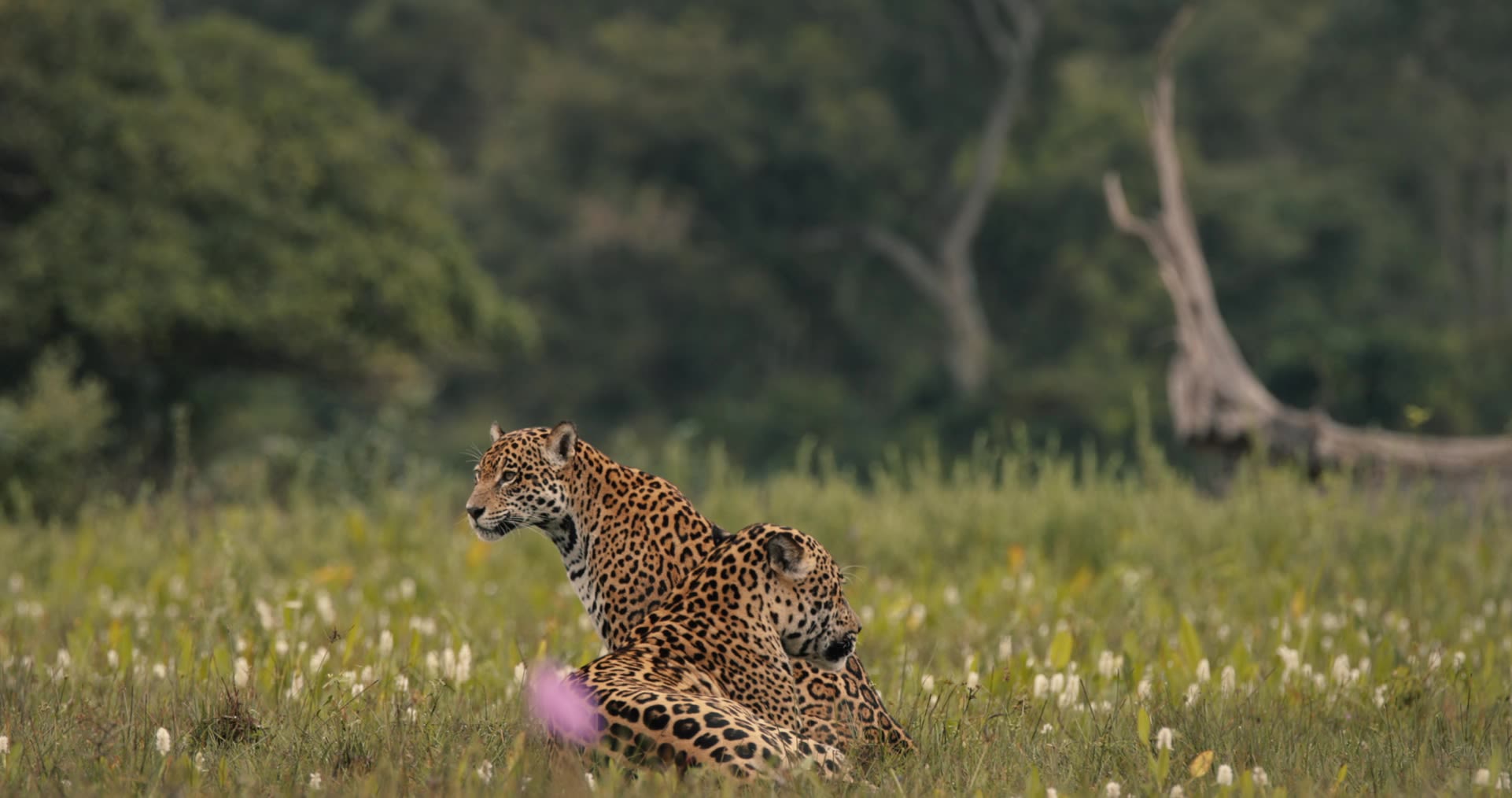
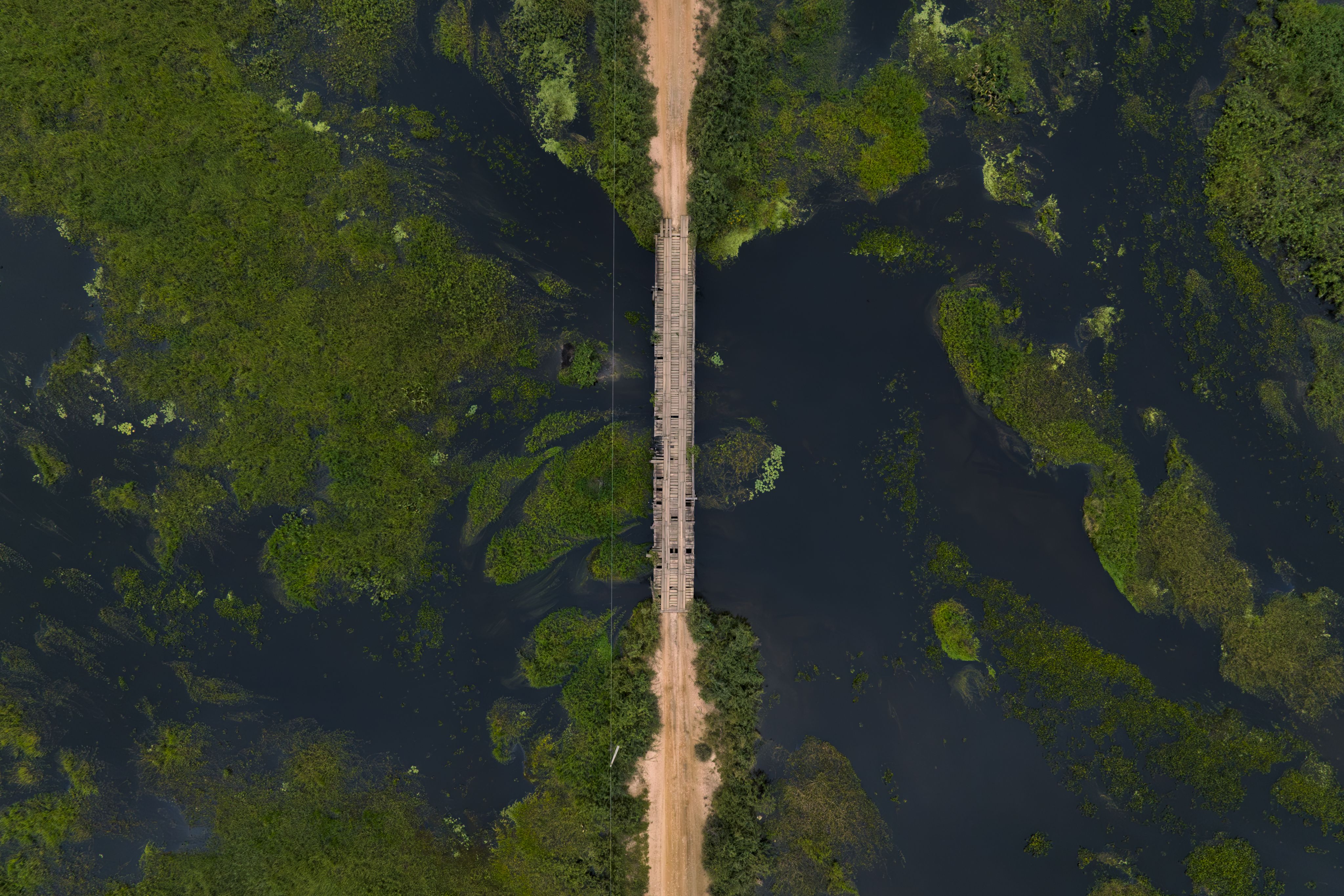
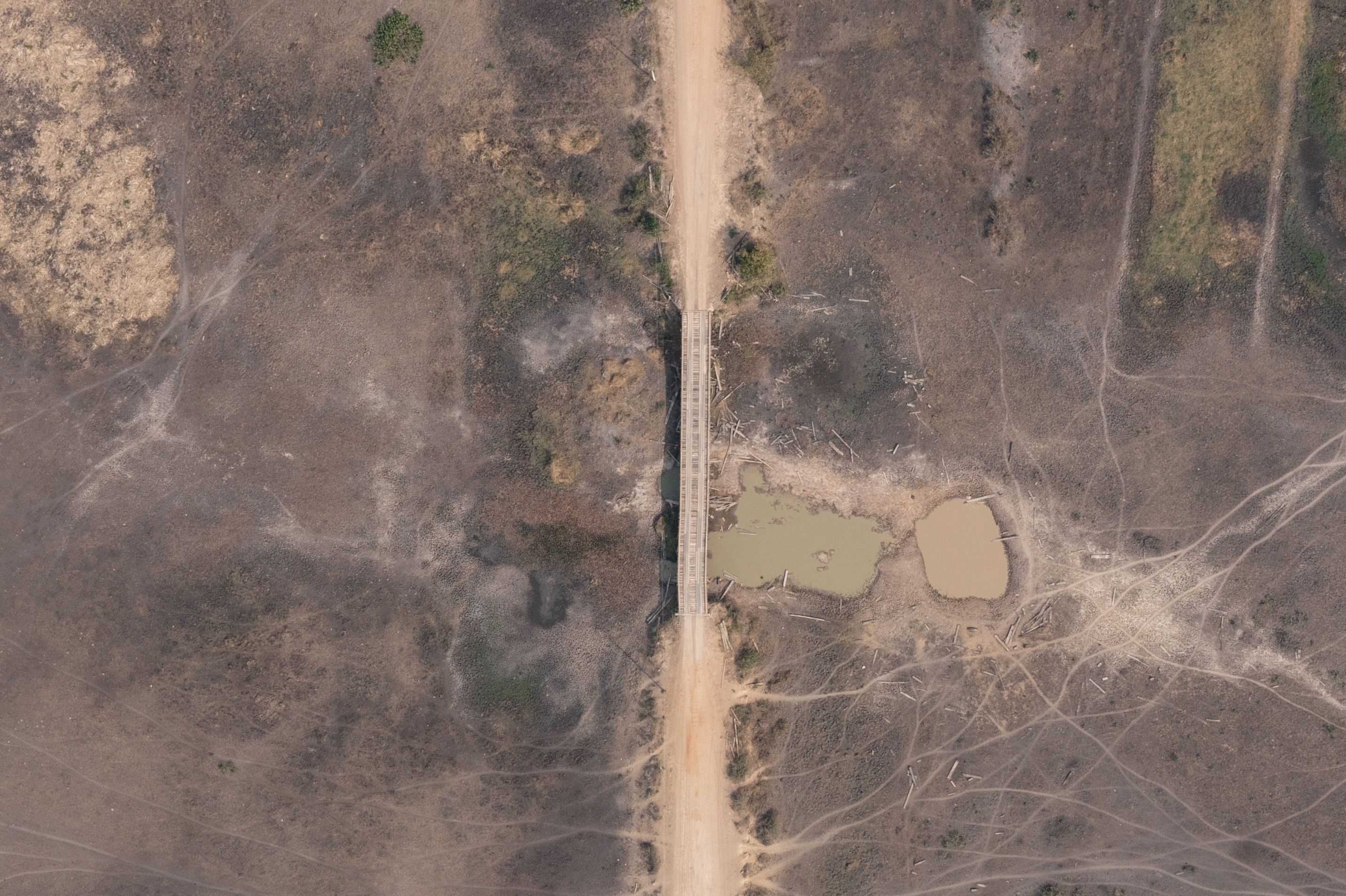
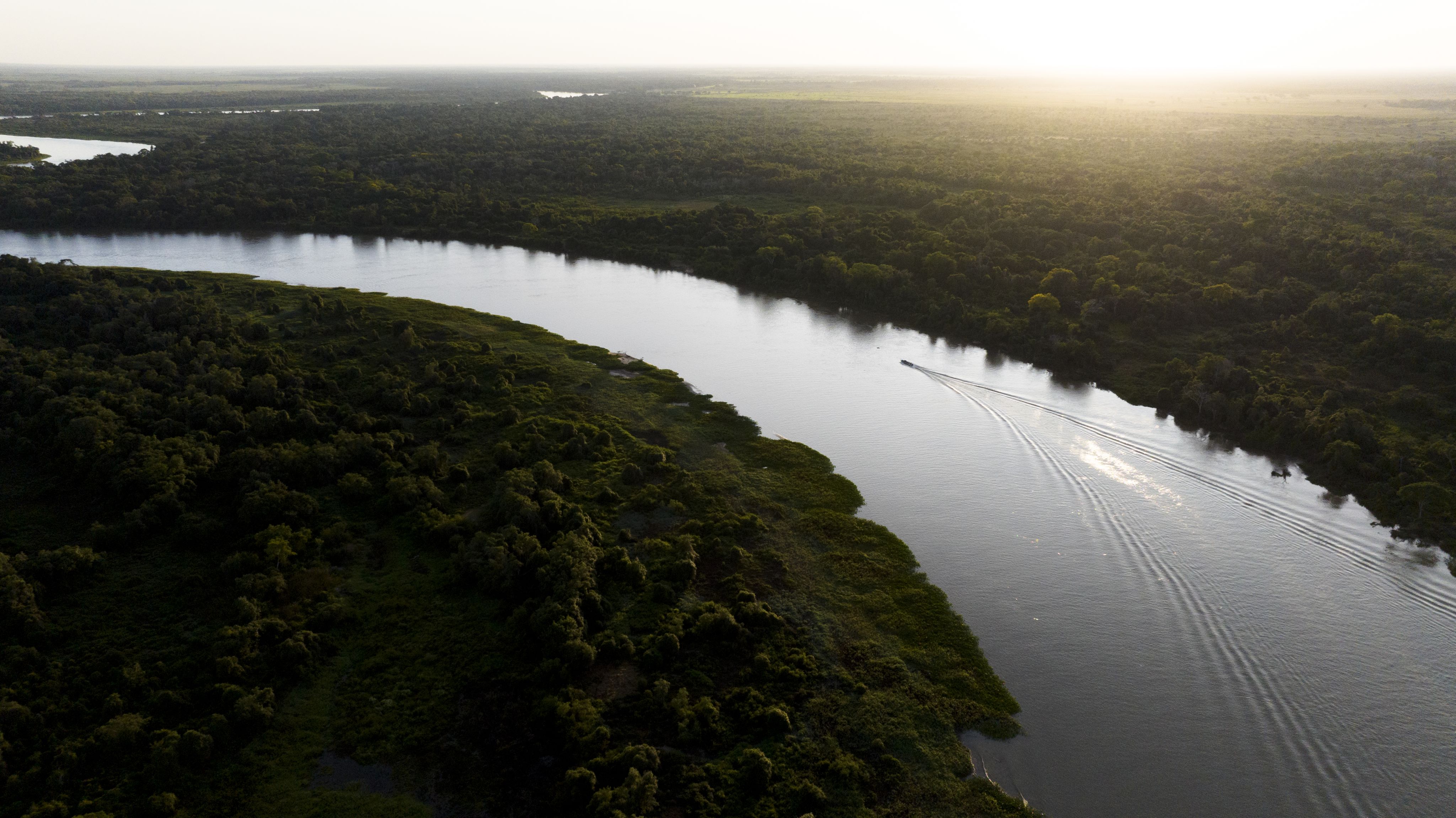
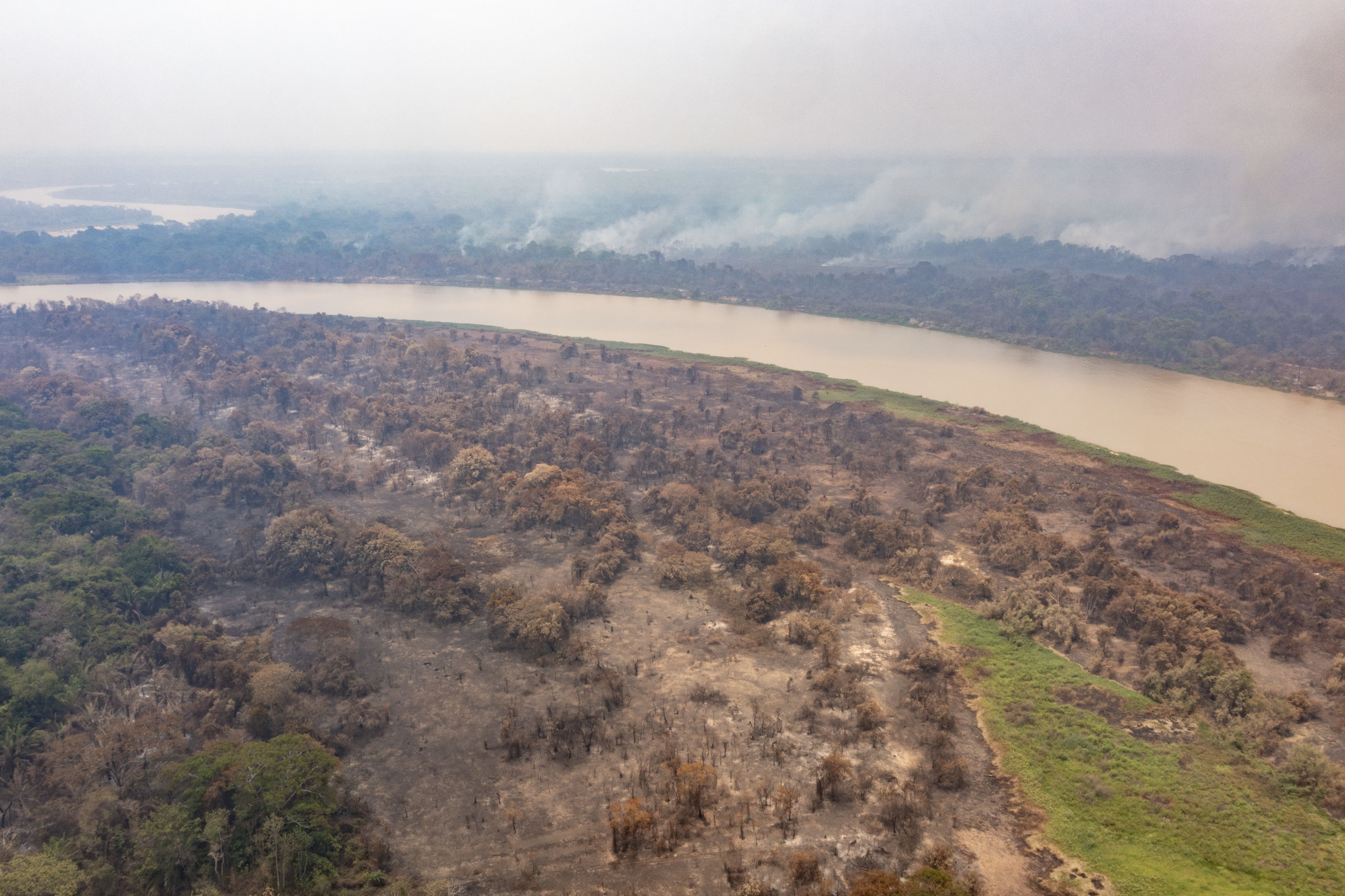
Despite its ecological richness and exceptional value locally and globally, most of the Pantanal is unprotected. Around 93% of the Brazilian Pantanal is held in private lands, of which 80% is used for cattle ranching.
As a consequence of much of the Pantanal being privately owned, wildfires have razed large parts of this one-of-a-kind wetland to the ground in recent years.
By June 2024, the number of fires in the Pantanal had surged by an astonishing 1,500% compared to the same period in 2023.
Almost 95% of the fires in the first half of 2024 started on private land.
In 2020, approximately one third of the biome burned, killing more than 17 million wild vertebrates and emitting 115.6 million tonnes of carbon dioxide - the same as Belgium's total emissions for the entire year.
The vast majority of these fires were started by cattle ranchers in order to clear further land for cattle grazing.
They were further exacerbated by drought and climate breakdown across the wetland.
In the Pantanal , EJF is working with Indigenous communities and firefighters to combat wildfires by providing drone training.
By using these drones, local residents are able to assess the spread of the fires and consequently maximise the use of their limited resources.
The brigades we have trained so far protect over 600,000 hectares of native grasslands, flooded savannas and forests.
Indigenous firefighters are essential in the battle to contain the Pantanal's wildfires.
But as long as cattle ranch owners are able to continue operating with impunity, this irreplaceable wetland will keep burning, and these firefighters will still be exposed to extreme dangers as they battle to save their homes.

This devastation is unfortunately not unique to the Pantanal.
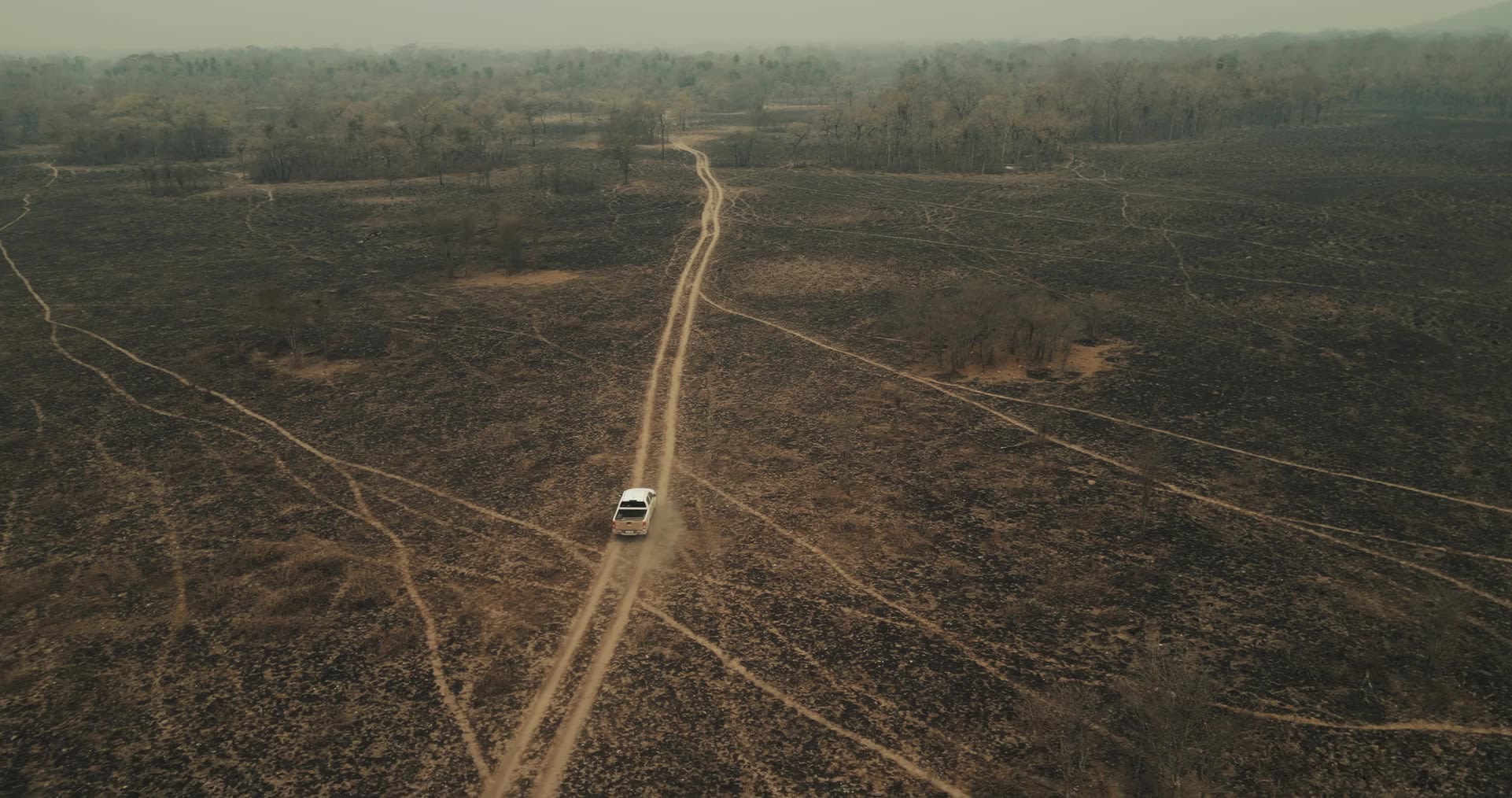
In a new briefing available here, EJF spotlights the voices of those impacted first and worst by the spread of wildfires globally.
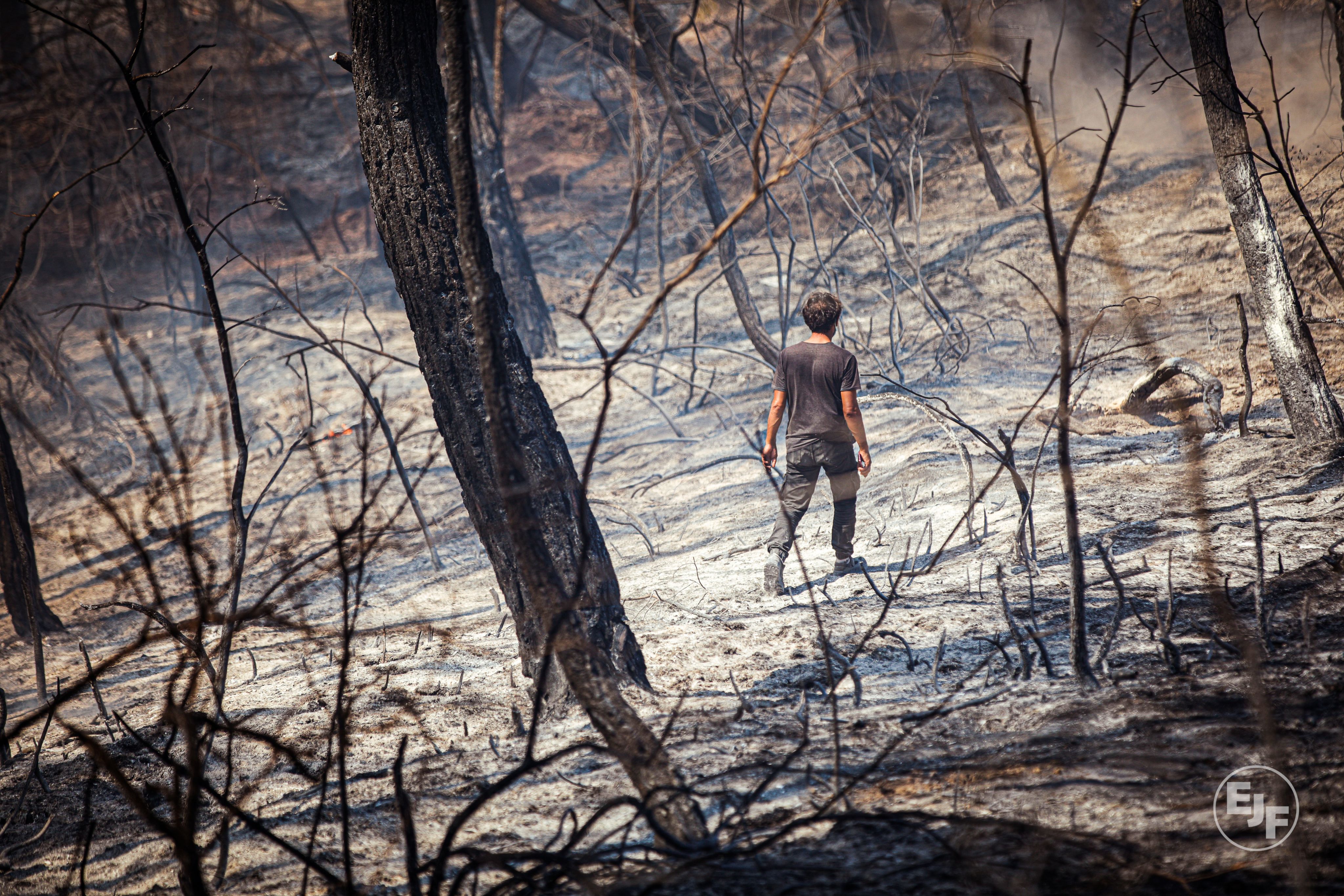
On January 7 2025, several fires flared across Los Angeles, with the two most significant being the Palisades fire, which burned over 9,300 hectares, and the Eaton fire which damaged over 5,600 hectares., Collectively, they destroyed over 16,000 structures, including homes and businesses.
One LA resident told EJF: "The entire city and beyond went through 10 days of intense fear."
Fires are used as a cost-effective method to clear land for agriculture in Indonesia, but burning peatland can rapidly blaze out of control. Between 2015 and 2019, 30% of all mapped fire areas occurred within palm oil and pulpwood concession areas.
A representative from Pantau Gambut, told EJF: "The carbon emissions are bigger [in peatland fires], at least in recent fires in 2019 and 2023 ... It has a bigger haze; that’s why the government, many times, gets complaints from nearby states, like Thailand and the Philippines."
An alarming study of fire trends in Central and West Africa revealed that active fires have doubled over just 18 years, most notably in the Congo Basin, fueled by rising temperatures, prolonged droughts, and human-driven deforestation.
One expert told EJF, "the Congo peatlands are absolutely an area to be concerned about. These landscapes are amazing ... Once fire starts to get into tropical forest and tropic peatlands, it has insidious effects. When peat burns, it’s what we call a ground fire. The peat smoulders, but it goes on and on."
Despite covering just 3–4% of the Earth’s land surface, peatlands alone contain as much carbon as all of the world’s forests and store up to one-third of the world’s soil carbon.
Between March 2024 and February 2025 more than 3.7 million square kilometres of land burned, a total area larger than India. Emissions from this period were 9% higher than the 20-year average.
The intensity is also growing globally, with a 2-fold increase in the frequency and magnitude of extreme fire events. The increase in emissions is largely because of fires in critical carbon sinks such as forests and wetlands, which are vital for biodiversity protection, livelihoods and economic development.
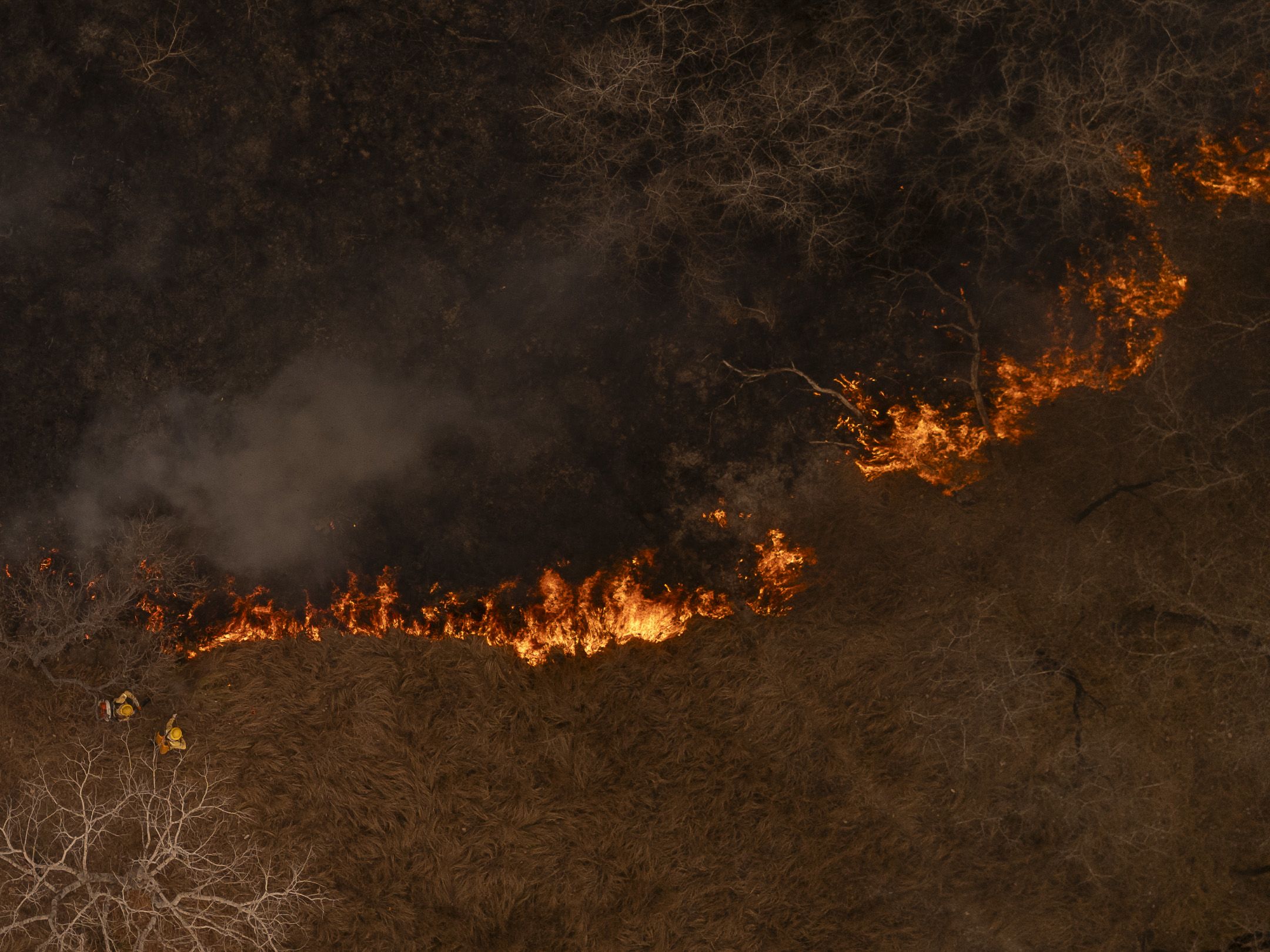
Luciana Leite, Chief Brazil Representative at EJF, is in attendance at COP30. If you would like to interview Luciana about EJF's work, please contact us at media@ejfoundation.org.
EJF will be hosting two side events at COP30 on 13th November and 19th November. Across these two events, prominent experts, decision-makers and campaigners will speak on fire management, carbon markets and Indigenous alternatives. In addition, Luciana will be presenting President Lula with this open letter calling for the protection of global wetlands on 13th November. If you'd like more details, please let us know.
Throughout COP, we will be calling for wetlands to be placed at the forefront of climate action, backed by bold policy commitments, Indigenous leadership, and new global financing. Without urgent efforts to protect and restore wetlands - among Earth’s most powerful carbon stores - the goals of the Paris Agreement will remain out of reach.
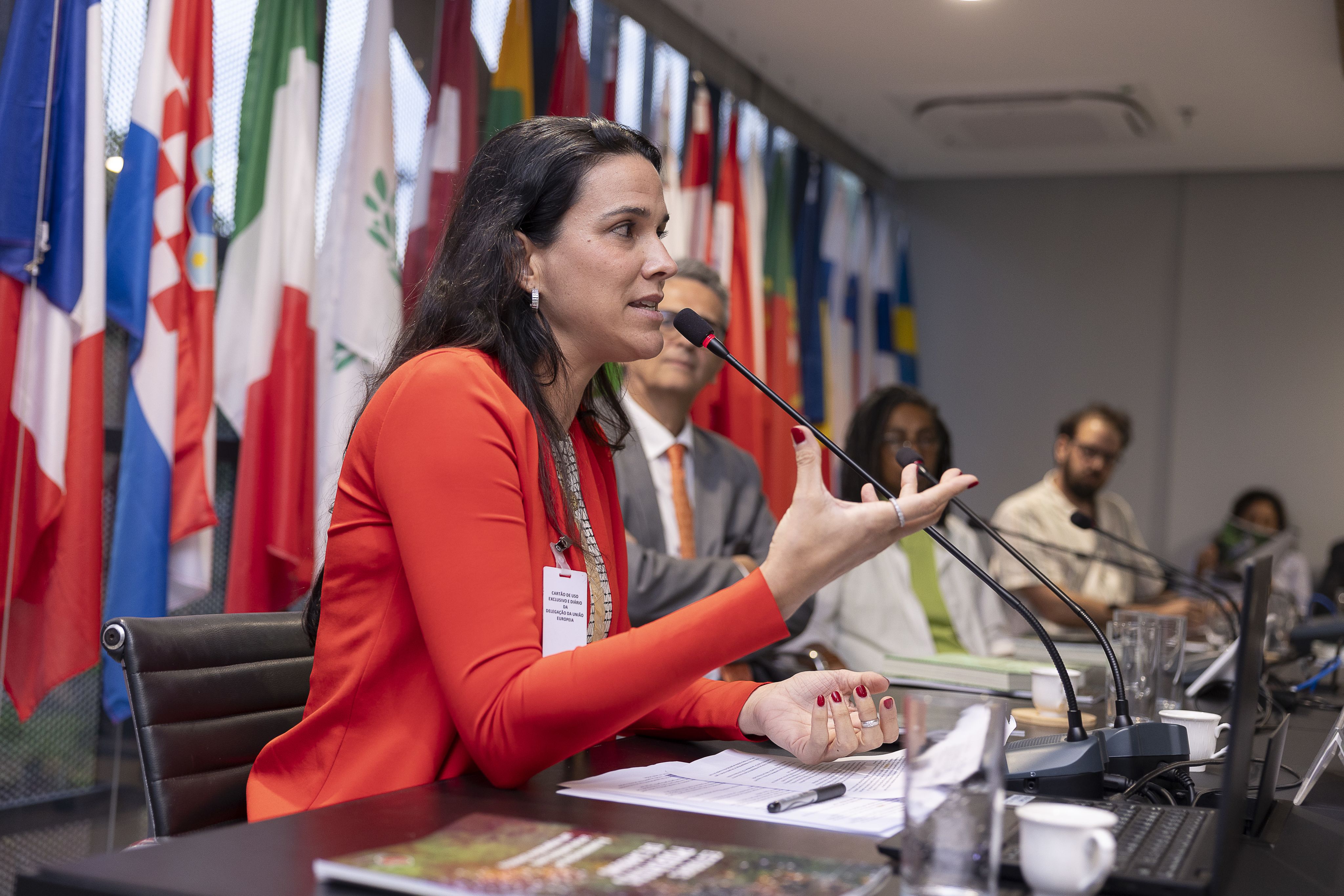
"Destroying wetlands is pure climate sabotage - if wetlands disappear, the Paris Agreement targets go with them.
"Every fraction of a degree matters, and every hectare of wetland preserved can help keep us within safe planetary limits. At COP30, governments must recognise that freshwater wetlands are irreplaceable carbon vaults and vital homes for people and wildlife. Protecting them is fundamental to stopping runaway climate chaos and securing a liveable future.”
Steve Trent, CEO and Founder of EJF
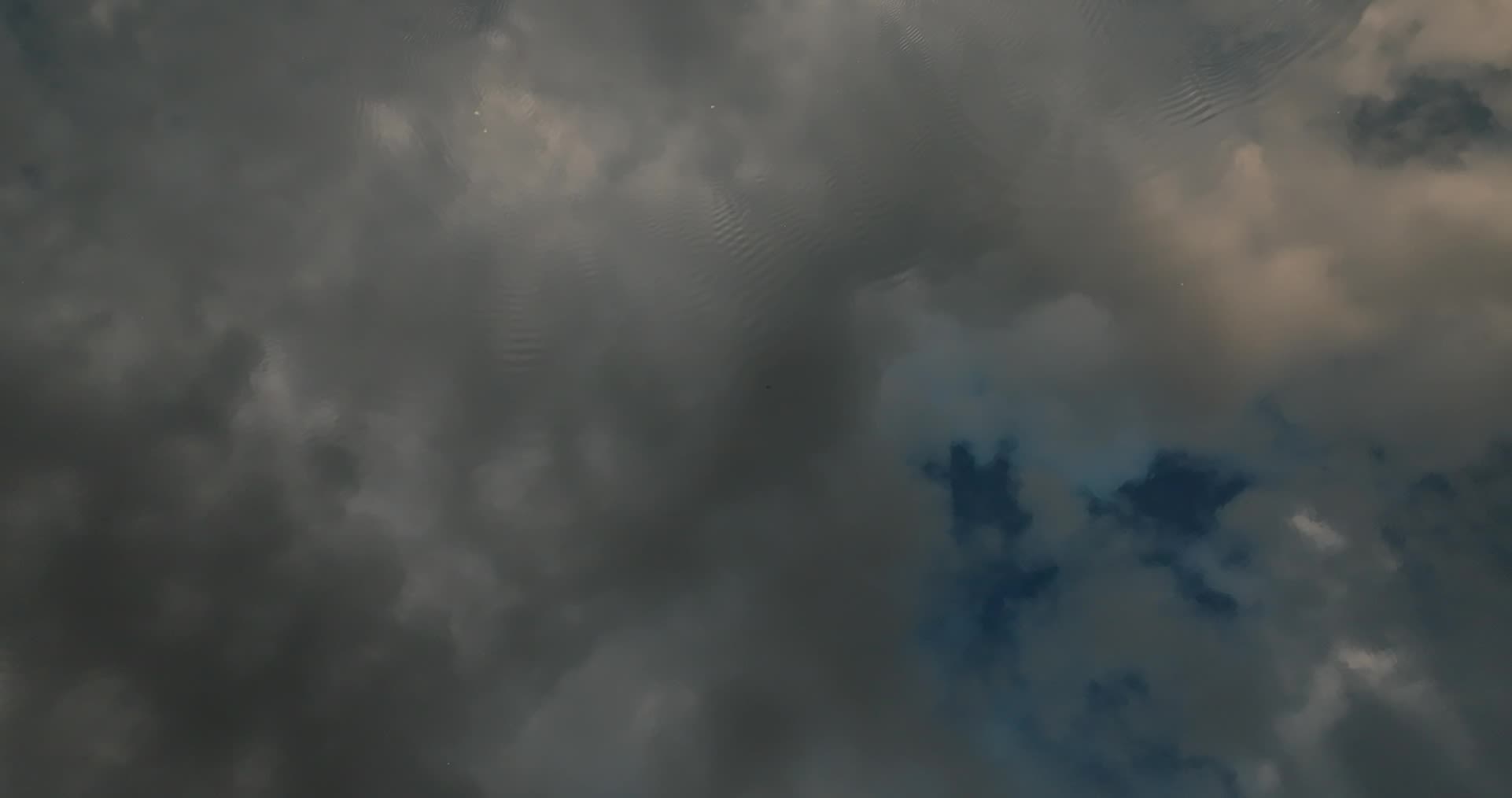
Visuals shared in this story are clipped from EJF's 2025 feature film about the Pantanal. If you would like access to EJF's photos, videos, expertise or on the ground sources, please reach out to alex.howlett@ejfoundation.org.
Our work to secure environmental justice aims to protect our global climate, ocean, forests, wetlands, wildlife and defend the fundamental human right to a secure natural environment, recognising that all other rights are contingent on this. EJF works internationally to inform policy and drive systemic, durable reforms to protect our environment and defend human rights. We investigate and expose abuses and support environmental defenders, Indigenous peoples, communities, and independent journalists on the frontlines of environmental injustice. Our campaigns aim to secure peaceful, equitable and sustainable futures. Our investigators, researchers, filmmakers, and campaigners work with grassroots partners and environmental defenders across the globe. For more information, please contact media@ejfoundation.org.

